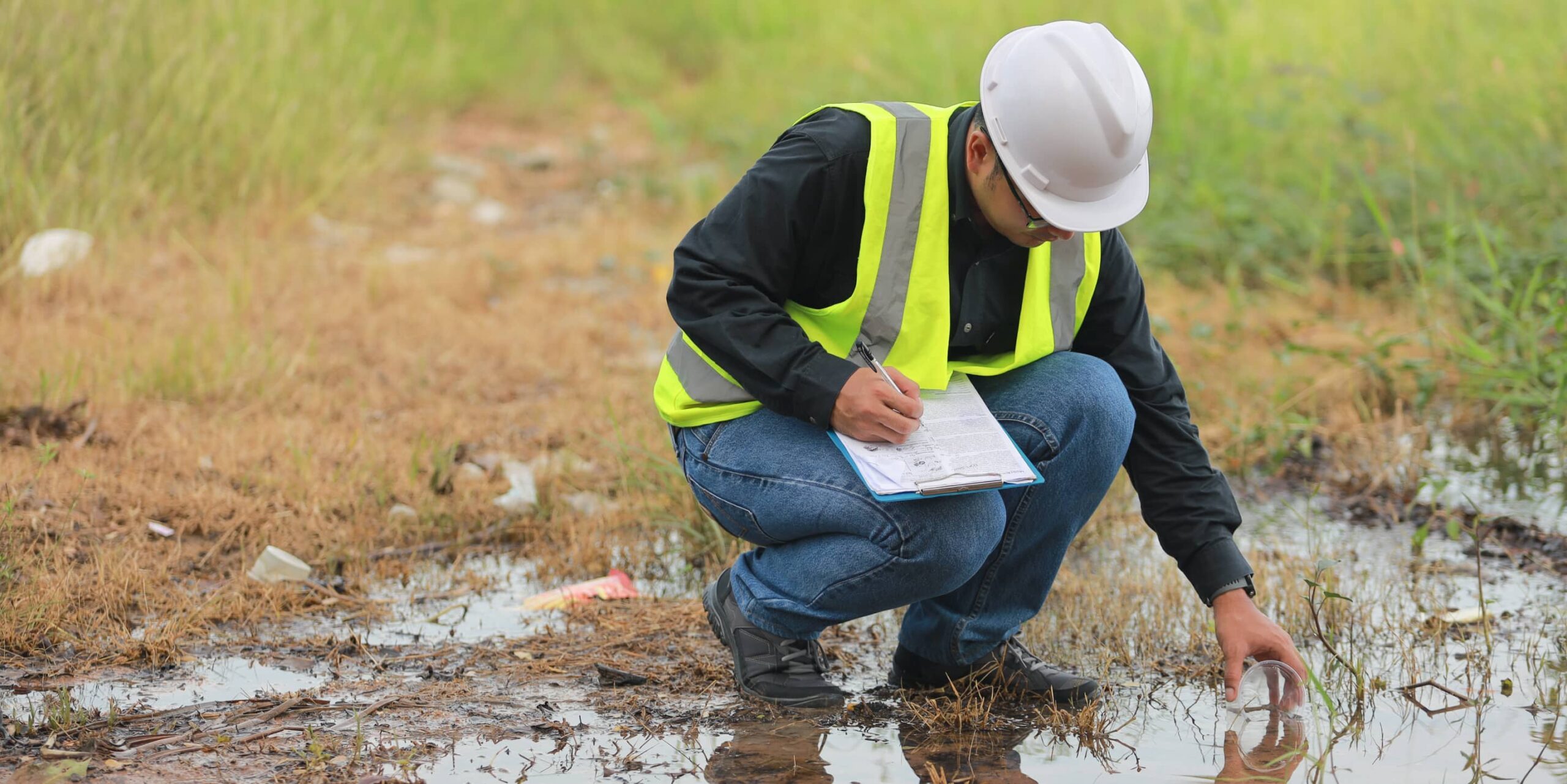What are ECO Canada’s Wage Funding Participants Up To?
For over 20 years, ECO Canada has been connecting employers and skilled talent through wage and training funding programs. This drives valuable on-the-job work experience and essential skills development.
We are invested in the future of the Canadian environmental workforce; therefore, we are invested in every program’s success! From making the initial connection between employers and talent to conducting in-person visits and supporting with customized training, we are focused on ensuring ECO Employment Programs support the growth of our country’s environmental workforce.
What are ECO Canada’s wage funding participants up to? Well, we stopped by to see!
Science Horizons Youth Internship: Sarah Falconer, Assiniboine Park Conservancy, in Winnipeg, Manitoba.
“After completing my master’s degree in conservation biology, I was looking for opportunities to put my theoretical conservation knowledge into practice. The wage funding program from ECO Canada helped me secure a position at the Assiniboine Park Conservancy as a Conservation Technician.”
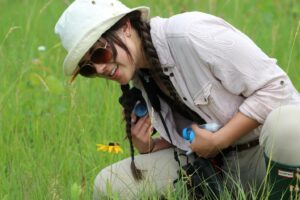
“Over the past year, I have directly contributed to the conservation of a variety of at-risk species including two species of grassland butterflies, aerial insectivores, and burrowing owls. My primary responsibility in my role is managing a non-invasive monitoring project for beluga whales, which allowed me to spend two weeks in Churchill, Manitoba collecting data to add to a multi-year program.”
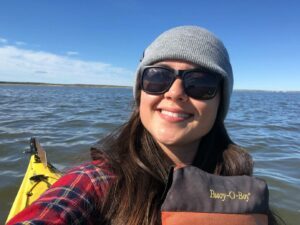
“In addition to my “hands-on” conservation experience, I have also improved my technical writing skills including applying for grants, general interest articles, and scientific papers. This also includes developing soft skills like project management, collaboration, and leadership. This comprehensive position so early in my career will be incredibly valuable to my future development as a conservation professional.”
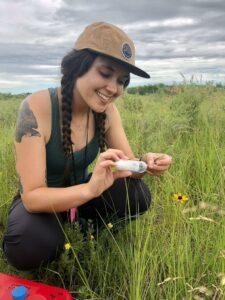
Student Work Placement (Co-op): Daniella Harvey, Jones Family Greens, in Lamont, Alberta
Daniella is enjoying her co-op as she is able to work outside and in an area of personal interest to her.
She is most proud of the bat boxes she built with no construction experience! She researched, found plans and made a list of required supplies to build two bat houses. There are nesting boxes in different colours for heat control from the sun.
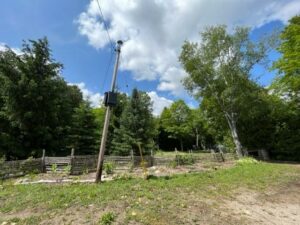
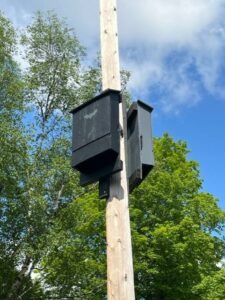
Student Work Placement (Co-op): Melissa Mrus, Nanaimo Science and Sustainability Society (NSSS), in Nanaimo, British Columbia
Melissa has expressed her time with NSSS to be very positive and plans to continue there as long as she can! She finds the work very rewarding and relevant to her schooling. She has also enjoyed getting to network and communicate with other Nanaimo science and environmental organizations.
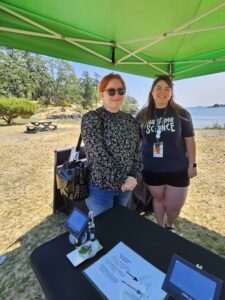
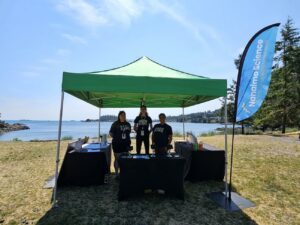
ECO Canada Wage Funding
The value of these programs is founded in our commitment to championing the end-to-end careers of Canadian environmental workers. The benefits reach educators, students, new practitioners, environmental professionals, and employers across the country.
With nearly 30% of the current workforce expected to retire in the next decade, there is a growing need to attract new talent. Over 170,0000 environmental job openings are expected to be filled by 2025.
Thank you for the support of our funders! We couldn’t offer organizations dollars to increase capacity and support business participation in the green economy without them. ECO Canada’s commitment to the environmental workforce has created more than 17,000 job placements with over $176 million in funding.
To learn more about ECO Canada’s wage funding opportunities, visit here.


